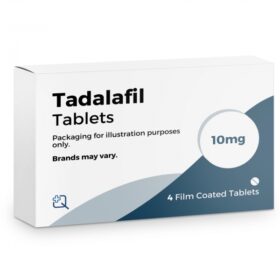- Your cart is empty
- Continue Shopping

Product
Focalin
$125.00 – $500.00
Focalin is a prescription medication that contains the active ingredient dexmethylphenidate. Dexmethylphenidate is a central nervous system stimulant and is chemically similar to methylphenidate, another commonly prescribed stimulant medication. Focalin is primarily used for the treatment of attention deficit hyperactivity disorder (ADHD).
Focalin
Focalin is a prescription medication that contains the active ingredient dexmethylphenidate. Dexmethylphenidate is a central nervous system stimulant and is chemically similar to methylphenidate, another commonly prescribed stimulant medication. Focalin is primarily used for the treatment of attention deficit hyperactivity disorder (ADHD). Here’s some more information about Focalin:
Mechanism of Action: Focalin works by increasing the levels of certain neurotransmitters in the brain, including dopamine and norepinephrine. These neurotransmitters play a role in regulating attention, focus, and impulse control, which are areas of difficulty for individuals with ADHD.
Medical Uses: The drug is primarily prescribed to manage the symptoms of ADHD in children, adolescents, and adults. It helps improve attention span, decrease impulsiveness, and control hyperactivity. Focalin may be used as part of a comprehensive treatment plan that can include behavioral therapy and educational support.
Dosage Forms: Focalin is available in immediate-release tablets, as well as extended-release capsules. The immediate-release formulation provides a rapid onset of effects, while the extended-release formulation provides a more gradual release of the medication over an extended period.
Dosage and Administration: The dosage of Focalin is individualized based on various factors, including age, weight, and the specific needs of the person being treated. The medication is typically taken orally once or twice a day, with or without food, as directed by the prescribing healthcare professional.
Effects and Benefits: Focalin helps improve focus, attention, and impulse control in individuals with ADHD. It may enhance cognitive abilities, increase alertness, and reduce hyperactivity and restlessness. By managing these symptoms, Focalin can help individuals with ADHD improve their ability to concentrate and engage in daily activities.
Side Effects: Common side effects of Focalin may include decreased appetite, weight loss, insomnia, dry mouth, irritability, and restlessness. Some individuals may experience more severe side effects, such as mood changes, increased heart rate, elevated blood pressure, or allergic reactions. It is important to report any concerning or persistent side effects to a healthcare professional.
Precautions and Contraindications: Focalin is contraindicated in individuals with a history of cardiovascular disease, hypertension, hyperthyroidism, glaucoma, or a known hypersensitivity to stimulant medications. It should be used with caution in individuals with a history of substance abuse or mental health disorders. It may interact with other medications, so it is important to inform the prescribing healthcare provider about all current medications and medical conditions.
Potential for Abuse: Focalin, like other stimulant medications, has a potential for abuse and can lead to dependence or addiction. It is classified as a Schedule II controlled substance in the United States due to its potential for misuse. Therefore, it should be used exactly as prescribed and not shared with others.
Duration of Effects: The duration of effects of Focalin can vary depending on the formulation. Immediate-release tablets usually provide effects for approximately 4-6 hours, while extended-release capsules can provide effects for up to 12 hours. The duration may be influenced by factors such as metabolism, dose, and individual response to the medication.
Dosage Adjustment: The dosage of this drug is typically initiated at a low dose and adjusted gradually based on the response and tolerance of the individual. The goal is to find the lowest effective dose that provides symptom relief while minimizing side effects. Regular monitoring and communication with the prescribing healthcare professional are important to ensure optimal dosage adjustment.
Non-Stimulant Alternatives: While stimulant medications like Focalin are often the first line of treatment for ADHD, some individuals may not tolerate or respond well to them. In such cases, non-stimulant medications, such as atomoxetine or certain antidepressants, may be considered as alternative options.
Drug Interactions: The drug may interact with other medications, including certain antidepressants, antihypertensives, and monoamine oxidase inhibitors (MAOIs). These interactions can affect the effectiveness or safety of both Focalin and the other medications. It is crucial to inform the prescribing healthcare provider about all current medications, including over-the-counter drugs and herbal supplements.

Long-Term Use and Monitoring: Long-term use of Focalin requires periodic monitoring to assess its ongoing effectiveness and monitor for any potential side effects or complications. Healthcare professionals may periodically reassess the need for continued treatment and evaluate the overall benefits and risks.
Cautions and Special Populations: The drug should be used with caution in individuals with a history of substance abuse, cardiovascular disease, or psychiatric disorders. It is important to disclose any relevant medical history or conditions to the prescribing healthcare provider. Special caution is necessary when prescribing this drug to children, adolescents, or elderly individuals, as they may have unique considerations and may require more frequent monitoring.
Withdrawal and Discontinuation: If Focalin treatment is discontinued after prolonged use, some individuals may experience withdrawal symptoms such as fatigue, depression, and increased appetite. It is important to work with a healthcare professional to gradually taper off the medication to minimize these effects.

Additional Information
| Dosage | 5mg, 10mg, 15mg, 20mg |
|---|---|
| Quantity | 25 tabs, 50 tabs, 100 tabs |








